- Chairs:
Prof. Miguel Gutiérrez Gaitán (Pontificia Universidad Católica de Chile, Chile)
Prof. Filippo Malandra (University of Buffalo, USA). - Jury Members:
Angela Yingjun Zhang (CHUK, Honk Kong)
Ashutosh Dutta (JHU/APL, USA)
Brunilde Sansó (Polytechnique Montréal, Canada)
Damla Turgut (UCF, USA)
Erik Larsson (Linköping University, Sweden)
Sinem Coleri (Koc University, Turkey)
Shashank Gaur (TTTech Auto, Austria)
Yéssica Sáez (UTP, Panama)

Since 2015, the IEEE ComSoc Young Professionals Committee has recognized outstanding achievements established the
IEEE ComSoc Best YP Award. There are two categories of this award:
- Academia
- Industry
Additionally, since 2024, three special nominations were included: “Best Practitioner,” “Best Volunteer,” and “Best Early Career.”
The purpose of the IEEE ComSoc Best YP Award is two-fold:
- To acknowledge and promote the remarkable achievements of Young Professionals in Academia and Industry;
- To encourage participation of YPs in IEEE, ComSoc and the IEEE Young Professionals community.
Read more about other YP awards below.
Additional YP Awards
| Title of Award | Details |
|---|---|
| The IEEE Communications Society Young Author Best Paper Award | |
| IEEE ComSoc Young Researcher Award for the Europe, Middle East, and Africa Region | |
| Latin America Region Young Professional Award | |
| Asia/Pacific Young Researcher Award | |
| N2 Women Young Researcher Fellowship awards | |
| Wireless Communications Technical Committee Outstanding Young Researcher Award | |
| Communication Theory Technical Committee Early Achievement Award | |
MGA Young Professional Achievement Award | |
| IEEE Theodore W. Hissey Outstanding Young Professional Award |
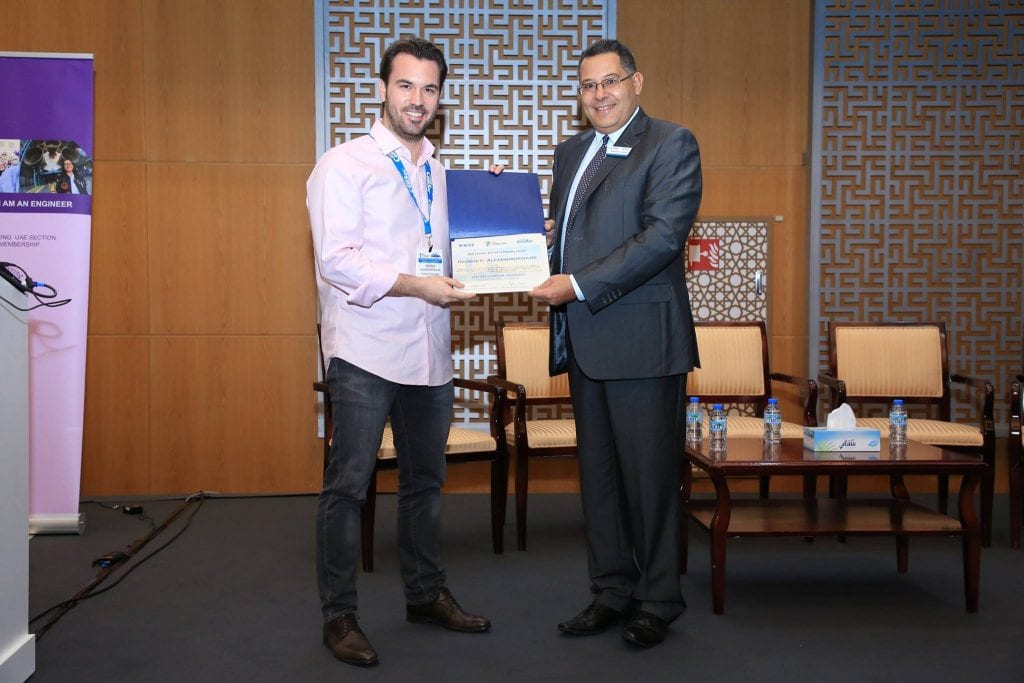
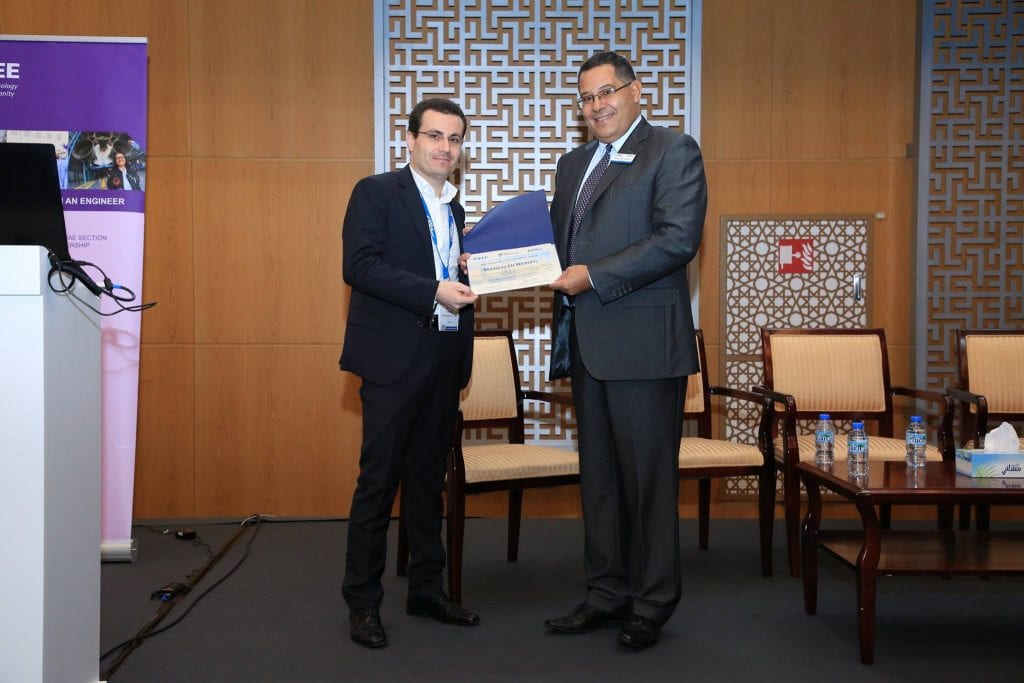
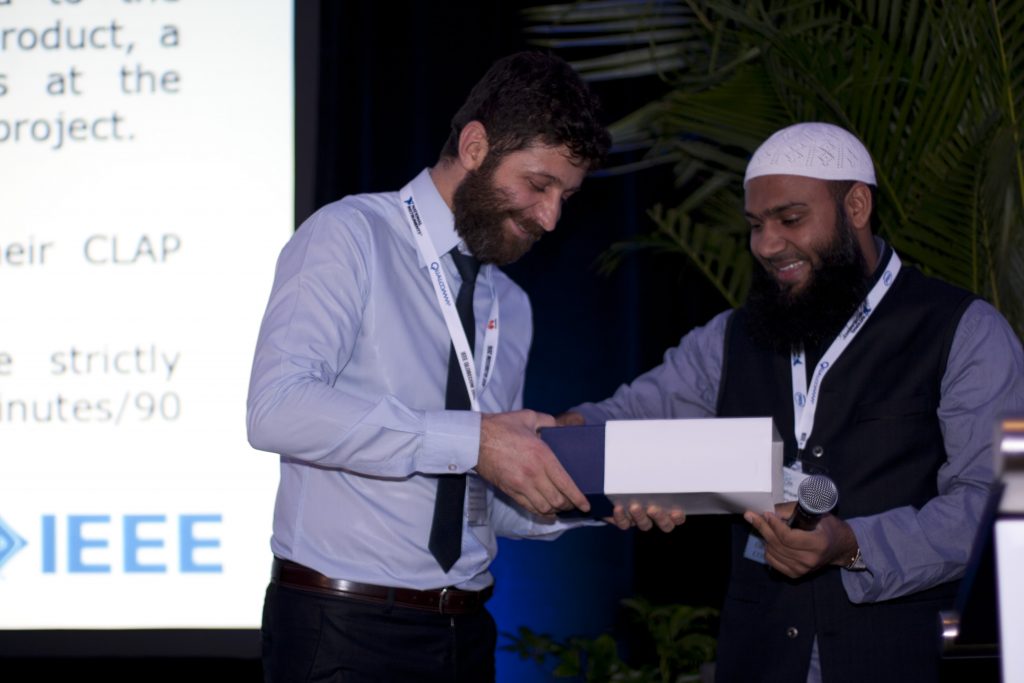

Congratulations to our Winners!!
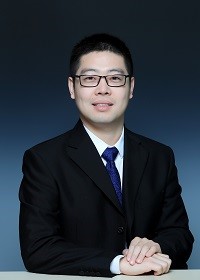
2021 IEEE ComSoc Best YP Award in Academia
FOR CONTRIBUTIONS TO THE THEORY AND DEVELOPMENT OF
INTEGRATED TERRESTRIAL-SATELLITE NETWORKS
Chunxiao Jiang is an associate professor in School of Information Science and Technology, Tsinghua University. He received the B.S. degree in information engineering from Beihang University, Beijing in 2008 and the Ph.D. degree in electronic engineering from Tsinghua University, Beijing in 2013, both with the highest honors. From 2011 to 2012 (as a Joint Ph.D) and 2013 to 2016 (as a Postdoc), he was in the Department of Electrical and Computer Engineering at University of Maryland College Park under the supervision of Prof. K. J. Ray Liu. His research interests include application of game theory, optimization, and statistical theories to communication, networking, and resource allocation problems, in particular space networks and heterogeneous networks. Dr. Jiang has served as an Editor of IEEE Transactions on Communications, IEEE Internet of Things Journal, IEEE Wireless Communications, IEEE Network, IEEE Communications Letters, and a Guest Editor of IEEE Communications Magazine, IEEE Transactions on Network Science and Engineering and IEEE Transactions on Cognitive Communications and Networking. He has also served as a member of the technical program committee as well as the Symposium Chair for a number of international conferences, including IEEE Globecom 2021 Symposium Chair, IEEE CNS 2020 Publication Chair, IEEE WCSP 2019 Symposium Chair, IEEE ICC 2018 Symposium Co-Chair, IWCMC 2020/19/18 Symposium Chair, WiMob 2018 Publicity Chair, ICCC 2018 Workshop Co-Chair, and IEEE ICC 2017 Workshop Co-Chair. Dr. Jiang is the recipient of the Best Paper Award from IEEE GLOBECOM in 2013, the Best Student Paper Award from IEEE GlobalSIP in 2015, IEEE Communications Society Young Author Best Paper Award in 2017, the Best Paper Award IWCMC in 2017, IEEE ComSoc TC Best Journal Paper Award of the IEEE ComSoc TC on Green Communications & Computing 2018, IEEE ComSoc TC Best Journal Paper Award of the IEEE ComSoc TC on Communications Systems Integration and Modeling 2018, the Best Paper Award from ICC 2019, IEEE VTS Early Career Award 2020, IEEE ComSoc Asia-Pacific Best Young Researcher Award 2020, and IEEE VTS Distinguished Lecturer 2021. He received the Chinese National Second Prize in Technical Inventions Award in 2018 and Natural Science Foundation of China Excellent Young Scientists Fund Award in 2019. He is a Senior Member of IEEE and a Fellow of IET.
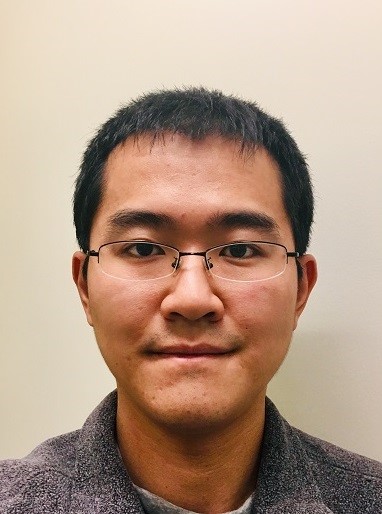
2021 IEEE ComSoc Best YP Award in Industry
FOR THE PIONEERING AND FOUNDATIONAL CONTRIBUTIONS TO
WORKLOAD SCHEDULING AND MACHINE LEARNING IN EDGE COMPUTING
Shiqiang Wang is a Research Staff Member at IBM T. J. Watson Research Center, NY, USA. He received his Ph.D. from Imperial College London, United Kingdom, in 2015. His current research focuses on the intersection of communications, distributed computing, machine learning, networking, and optimization. He has made foundational contributions to edge computing and federated learning that generated both academic and industrial impact. Dr. Wang serves as an associate editor of the IEEE Transactions on Mobile Computing. He has also been actively organizing workshops at the intersection of edge computing and machine learning, and regularly participates in technical program committees (TPCs) of prominent conferences and review panels of research grants. He received the IEEE Communications Society Leonard G. Abraham Prize in 2021, IBM Outstanding Technical Achievement Award (OTAA) in 2019 and 2021, multiple Invention Achievement Awards from IBM since 2016, Best Paper Finalist of the IEEE International Conference on Image Processing (ICIP) 2019, and Best Student Paper Award of the Network and Information Sciences International Technology Alliance (NIS-ITA) in 2015.
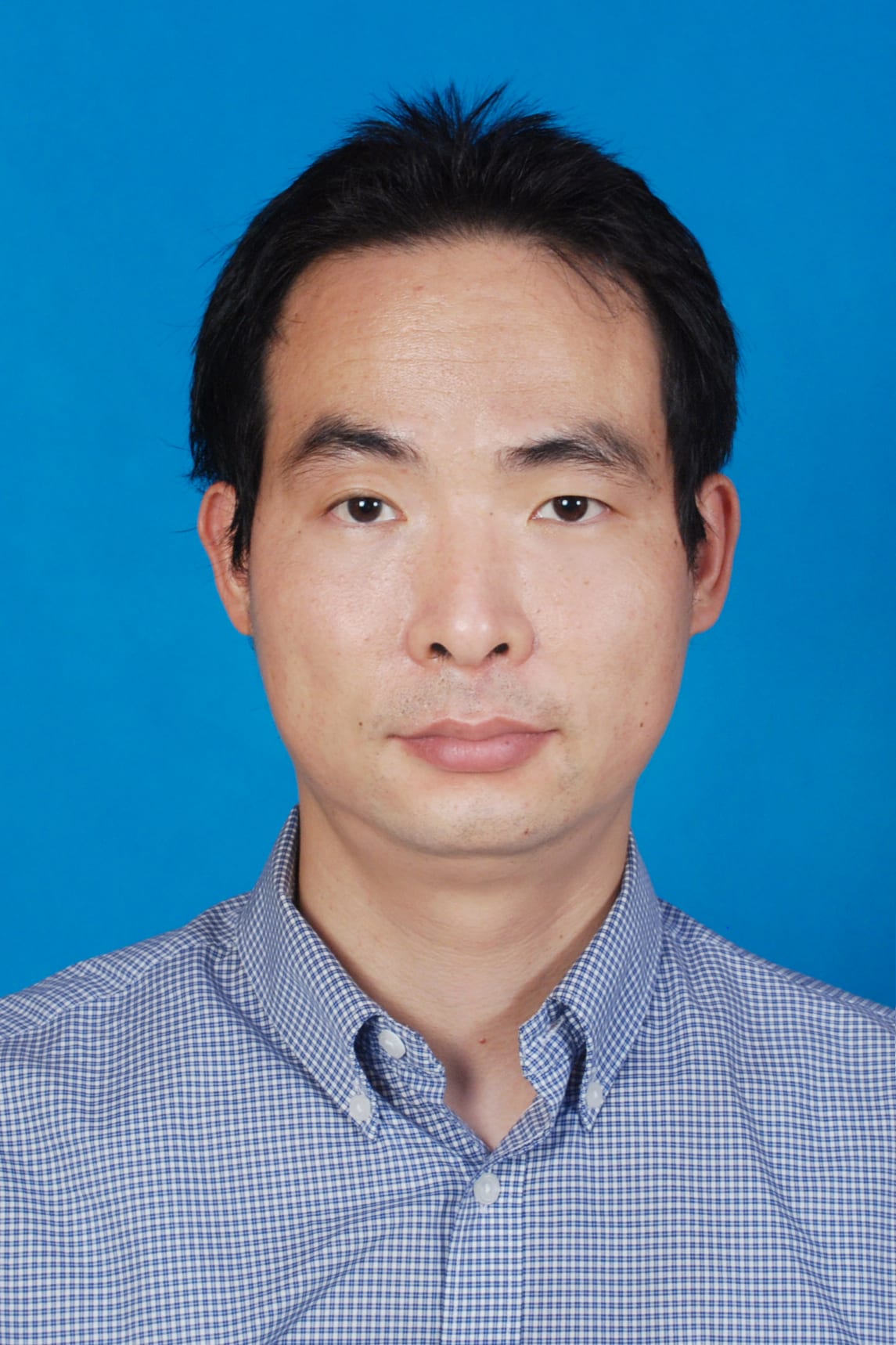
2020 IEEE ComSoc Best YP Award in Academia
For the contribution to networking, communications, and security of intelligent vehicles.
Jiajia Liu is a Professor at School of Cybersecurity, Northwestern Polytechnical University. His research interests cover wireless mobile communications, FiWi, IoT, and more. He has published more than 100 peer reviewed papers in many prestigious IEEE journals and conferences, and currently serves as an associate editor for IEEE Transactions on Wireless Communications and IEEE Transactions on Vehicular Technology, an editor for IEEE Network, and a guest editor of IEEE TETC and the IEEE Internet of Things Journal. He is a Distinguished Lecturer of the IEEE Communications Society.
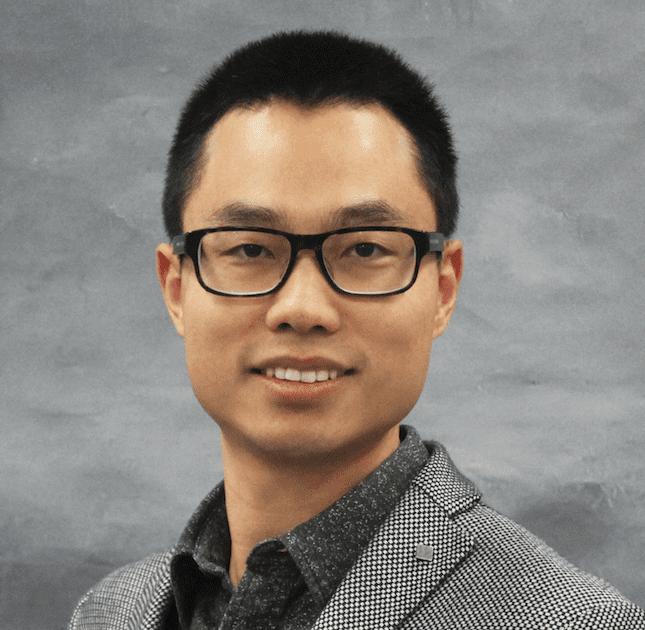
2020 IEEE ComSoc Best YP Award in Industry
For contributions to IoT, Aerial, and D2D communications in 5G NR and LTE Advanced.
Xingqin Lin is a Master Researcher, Team Leader, and Standardization Delegate at Ericsson Research Silicon Valley, leading 5G/6G research and standardization in the areas of non-terrestrial communications and networking (satellites/HAPS/airplanes/drones). He is a member of the Ericsson NextGen Advisory Board, collaborating with Ericsson Executive Team to drive strategic projects. He is a key contributor to 5G NR, NB-IoT, and LTE standards. His pioneering work on cellular-connected UAVs helped establish the 3GPP Rel-15 work on enhanced LTE support for aerial vehicles. He is an expert in wireless communications and technology strategy.
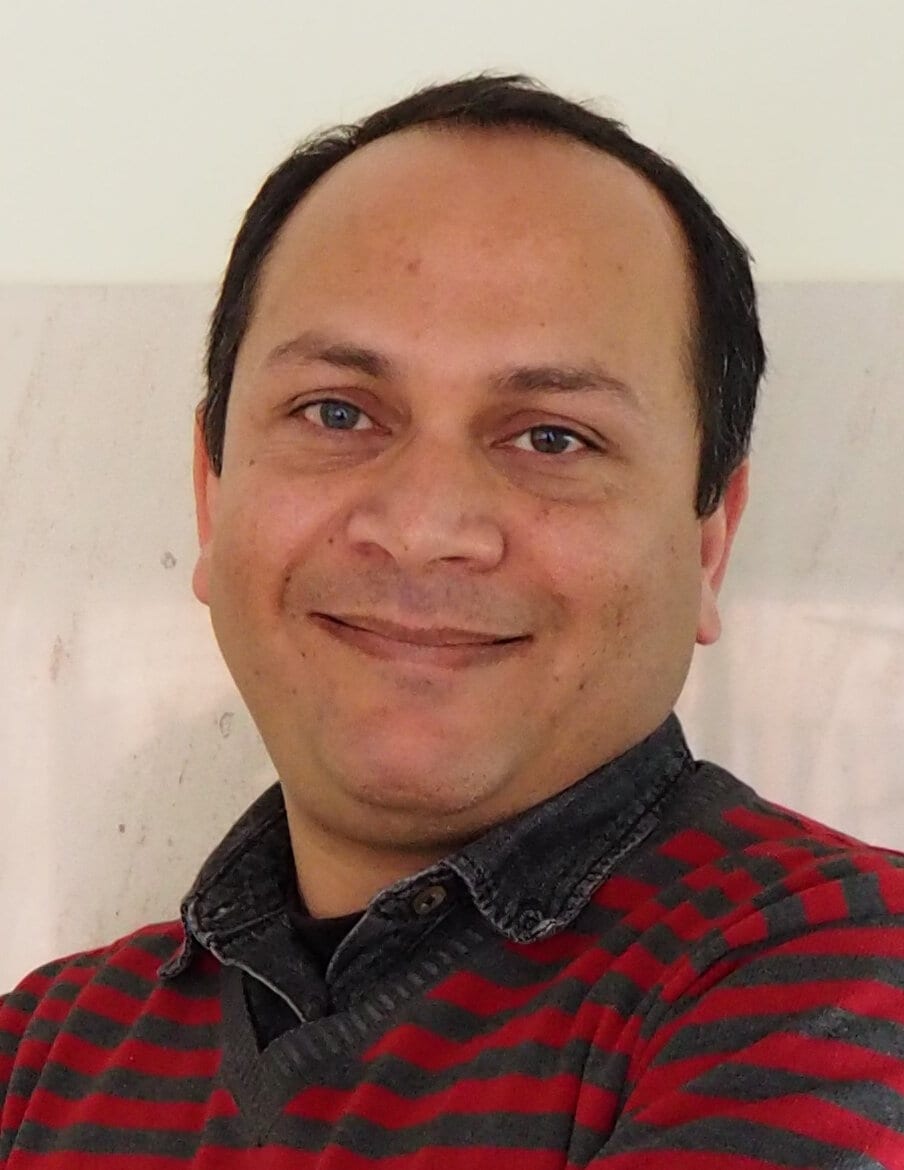
2019 IEEE ComSoc Best YP Award in Academia
For the contribution in terms of innovative wireless communication Research and Development especially in the area of Physical and MAC layer technologies
Shahid Mumtaz is an ACM Distinguished Speaker, IEEE Senior member, founder and EiC of IET "journal of Quantum communication," Vice-Chair: Europe/Africa Region- IEEE ComSoc: Green Communications & Computing society and Vice-chair for IEEE standard on P1932.1: Standard for Licensed/Unlicensed Spectrum Interoperability in Wireless Mobile Networks. He is the founder of two Journals. He has more than 12 years of wireless industry/academic experience. He has received his Master's and Ph.D. degrees in Electrical & Electronic Engineering from Blekinge Institute of Technology, Sweden, and University of Aveiro, Portugal in 2006 and 2011. He is the author of 4 technical books, 12 book chapters, 180+ technical papers (150+ Journal/transaction, 80+ conference, 2 IEEE best paper award- in the area of mobile communications. He is serving as Scientific Expert and Evaluator for various Research Funding Agencies. He was awarded an "Alain Bensoussan fellowship "in 2012. He is the recipient of the NSFC Researcher Fund for Young Scientist in 2017 from China.

IBM Research
2019 IEEE ComSoc Best YP Award in Industry
For the contribution in IoT and Edge computing
Dr. Fatemeh Jalali is a research scientist with IBM Research since 2015. Fatemeh received the Ph.D. degree from Centre for Energy-Efficient Telecommunications at The University of Melbourne. She holds a MSc and BS in Computer Engineering.Her main research interests include IoT, Edge/Fog computing, machine learning and energy consumption, in which she has authored several papers and patents. Fatemeh is a strong advocate of diversity, equality and wellbeing within the workplace and is actively involved in encouraging and inspiring young people, especially women, in the engineering and ICT through collaborations with non-profit professional organizations. Both her technical activities and STEM promotion activities are recognized by various professional organizations such as Engineer Australia (one of Australia's Most Innovative Engineers in 2018) and Heidelberg Laureate Forum (one of the 200 Most Qualified Young Researchers in 2017), EU-Australia Leadership Forum (one of the Emerging Leaders 2018) ,and IBM (Outstanding Technical Achievement Award).
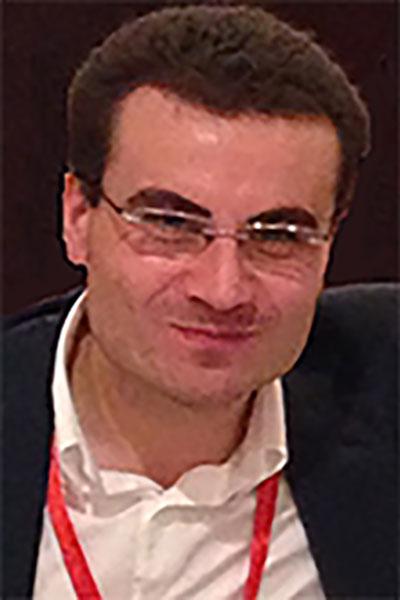
2018 IEEE ComSoc Best YP Award in Academia
In recognition of his outstanding contributions to academia, in terms of innovative Communications Research and IEEE ComSoc Services, especially in the area of emerging physical-layer technologies.
Dr. Marco Di Renzo was born in L’Aquila, Italy, in 1978. He received the Laurea (cum laude) and the Ph.D. degrees in Electrical and Information Engineering from the Department of Electrical and Information Engineering, University of L’Aquila, Italy, in April 2003 and in January 2007, respectively. In October 2013, he received the Habilitation à Diriger des Recherches (Doctor of Science) degree from the University Paris-Sud, Paris, France. He has held various research and academic positions in Italy at the University of L’Aquila, in the USA at Virginia Tech, in Spain at CTTC, and in the UK at The University of Edinburgh. Since 2010, he has been a CNRS Associate Professor (Chargé de Recherche Titulaire CNRS) in the Laboratory of Signals and Systems of Paris-Saclay University - CNRS, CentraleSupélec, Univ Paris Sud, France. He is a Distinguished Visiting Fellow of the Royal Academy of Engineering, UK. He is a co-founder of the university spin-off company WEST Aquila s.r.l., Italy. He is the Project Coordinator of the European-funded projects 5G-WIRELESS and 5G-AURA and a Principal Investigator of the European-funded projects GREENET, CROSSFIRE, WSN4QoL, SmartNRG, CASPER and of the French National Agency funded project SpatialModulation.

2018 IEEE ComSoc Best YP Award in Industry
In recognition of his outstanding contributions to industry, in terms of innovative Communications Research and Development, especially in the area of emerging architectures.
George C. Alexandropoulos (S’07-M’10-SM’15) received the Engineering Diploma, M.A.Sc. (Hons), and Ph.D. degrees (best thesis award) in computer engineering and informatics from the University of Patras, Greece in 2003, 2005, and 2010, respectively. He has held research positions at various Greek universities and research institutes, as well as at the Mathematical and Algorithmic Sciences Lab, Paris Research Center, Huawei Technologies France delivering RAN solutions for 4G, 5G NR and beyond, and mainly for full duplex and massive MIMO, hybrid A/D beamforming management, and reconfigurable metasurfaces. He is currently an Assistant Professor with the Department of Informatics and Telecommunications, National and Kapodistrian University of Athens, Greece. His research interests span the general areas of algorithmic design, optimization, and performance analysis for wireless networks with emphasis on transceiver hardware architectures, millimeter wave communications, and distributed machine learning approaches. He received the IEEE Communications Society Best Young Professional in Industry Award 2018, and currently serves as an Editor for the IEEE Transactions on Wireless Communications, IEEE Communications Letters, and Elsevier Computer Networks. More information is available at www.alexandropoulos.info.

2017 IEEE ComSoc Best YP Award in Academia
In recognition of his outstanding contributions to academia, especially, in innovative Communications Research and IEEE ComSoc volunteering activities
Walid Saad (S'07, M'10, SM’15, F’19) received his Ph.D degree from the University of Oslo in 2010. Currently, he is a Professor at the Department of Electrical and Computer Engineering at Virginia Tech where he leads the Network sciEnce, Wireless, and Security (NEWS) laboratory. His research interests include wireless networks, machine learning, game theory, cybersecurity, unmanned aerial vehicles, cellular networks, and cyber-physical systems. Dr. Saad was the author/co-author of eight conference best paper awards and of the 2015 IEEE ComSoc Fred W. Ellersick Prize. He is an IEEE Fellow and an IEEE Distinguished Lecturer. He is also the recipient of the 2017 IEEE ComSoc Best Young Professional in Academia award, of the 2018 IEEE ComSoc Radio Communications Committee Early Achievement Award, and of the 2019 IEEE ComSoc Communication Theory Technical Committee.
2017 IEEE ComSoc Best YP Award in Industry
NOT AWARDED

2016 IEEE ComSoc Best YP Award in Academia
In recognition of his outstanding contributions to the academia in terms of innovative Communications Research and IEEE ComSoc Services, especially in the area of Wireless Communications.
Ioannis Krikidis received the diploma in Computer Engineering from the Computer Engineering and Informatics Department (CEID) of the University of Patras, Greece, in 2000, and the M.Sc and Ph.D degrees from Ecole Nationale Sup\'erieure des T\'el\'ecommunications (ENST), Paris, France, in 2001 and 2005, respectively, all in electrical engineering. From 2006 to 2007 he worked, as a Post-Doctoral researcher, with ENST, Paris, France, and from 2007 to 2010 he was a Research Fellow in the School of Engineering and Electronics at the University of Edinburgh, Edinburgh, UK. He has held also research positions at the Department of Electrical Engineering, University of Notre Dame; the Department of Electrical and Computer Engineering, University of Maryland; the Interdisciplinary Centre for Security, Reliability and Trust, University of Luxembourg; and the Department ofElectrical and Electronic Engineering, Niigata University, Japan. He is currently an Associate Professor at the Department of Electrical and Computer Engineering, University of Cyprus, Nicosia, Cyprus. His current research interests include wireless communications, cooperative networks, 5G communication systems, wireless powered communications, and secrecy communications. Dr. Krikidis serves as an Associate Editor for IEEE Transactions on Wireless Communications, IEEE Transactions on Green Communications and Networking, and IEEE Wireless Communications Letters. He was the recipient of the Young Researcher Award from the Research Promotion Foundation, Cyprus, in 2013, and the recipient of the IEEEComSoc Best Young Professional Award in Academia, 2016. He has been recognized by the Web os Science as aHighly Cited Researcher for 2017, 2018, and 2019. He is an IEEE Fellow (class 2019) and he has received the prestigious ERC consolidator grant.
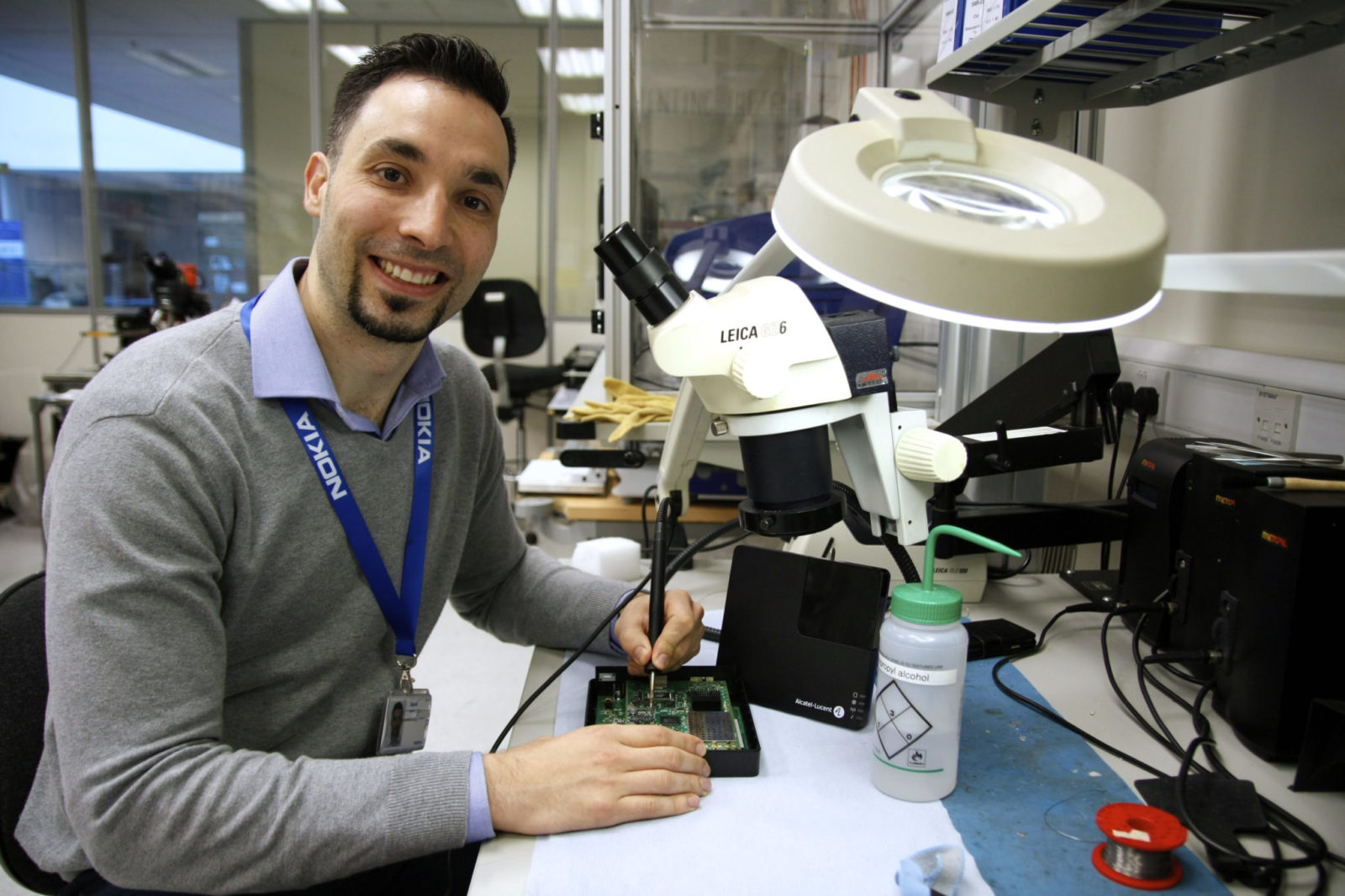
2016 IEEE ComSoc Best YP Award in Industry
In recognition of his outstanding contributions to the industry in terms of innovative Communications Research and Development, especially in the area of networking techniques for cellular networks.
Dr. David López-Pérez (www.dlopez.org) is a telecommunications engineer, who has devoted most of his career to the study of both cellular and Wi-Fi networks, where his main research interests are in network performance analysis,both theoretical and simulation-based, network planning and optimisation, as well as technology and feature development. David's main contributions are around the understanding of small cells and ultra-dense networks. He has also pioneered work on cellular and Wi-Fi inter-working, and investigated both multi-antenna capabilities and ultra-reliable low latency features for future indoor networks. David was recognised as Bell Labs Distinguished Member of Staff in 2019, has authored 1 book on small cells, and has published more than 150 research manuscripts on a variety of related topics. David has filed 52 patents applications with more than 25 granted as of today, and has received a number of prestigious awards. He is an editor of IEEE TWC.
Other ComSoc YP Awards
- Dr. Neetesh Saxena, recipient of the IEEE ComSoc YPs and WICE Best Paper Award in recognition of his technical paper titled:“Secure and Privacy-Preserving Concentration of Metering Data in AMI Networks”
(given at ICC’17) – interview with Neetesh can be accessed here - Dr. Josep Miquel Jornet, recipient of the IEEE ComSoc YPs and WICE Best Innovation Award in recognition of his innovative application of Nano-biosensors to Health Monitoring and Diagnosis “Smart Health Monitoring and Diagnosis System based on Wearable Nano-biosensing Networks”
(given at ICC’17) – interview with Josep can be accessed here - Shreyasee Mukherjee, recipient of the IEEE ComSoc YPs and WICE Best Abstract Presentation Award (given at ICC’17) – interview with Shreyasee can be accessed here
- Dr. Ahmed Bader from King Abdullah University of Science and Technology has been awarded the IEEE ComSoc YPs Best Innovation Award in recognition of his innovative mobile ad-hoc network design, development and commercialisation (given at WCNC’17)
- Dr. Kazuki Komatsu from Toyohashi University of Technology has been awarded the IEEE ComSoc YPs Best Paper Award in recognition of his technical paper: ”Frequency-Domain Hammerstein Self-Interference Canceller for In-Band Full-Duplex OFDM Systems” (given at WCNC’17)
- Guocheng Liao and Xu Chen has been awarded the IEEE ComSoc YP Best Paper Award in recognition of their technical paper titled: ”Optimal Privacy-Preserving Data Collection: A Prospect Theory Perspective” (given at GLOBECOM’17)
IEEE ComSoc Best YP Award
Purpose
The IEEE ComSoc Young Professionals Standing Committee has established the annual IEEE ComSoc Best Young Professional (YP) Award, one for each of the following areas: a) Academia; b) Industry. The purpose of the IEEE ComSoc Best YP Career Awards is twofold:
- To acknowledge and promote worldwide the outstanding achievements of Young Professionals (YPs) to the communications field in Academia and Industry;
- To encourage effective participation of YPs in IEEE, ComSoc and the IEEE Young Professionals community.
Rules & Eligibility
Both Self and non-self Nominations are allowed.
In order to be eligible for any of the two ComSoc YP awards, the candidates must meet the following criteria:
- Nominees must be YPs, i.e., the nominees must have received their first post-secondary degree (e.g. Bachelor’s level or an associate degree) within the past 15 years, relative to the nomination deadline. If this criterion is not met, the nominee must have “opted-in” to the IEEE Young Professional membership.
- Nominees are required to be members of IEEE ComSoc.
- Nominees from any country are eligible.
- Previous recipients of the IEEE ComSoc Best YP Awards are not eligible.
- The awards must be received by the winners in person at GLOBECOM. No award will be made in absentia, except under extraordinary circumstances, as determined by the IEEE ComSoc YP Award Selection Committee.
- Nominees can apply for only one IEEE ComSoc Best YP Award (i.e. in Academia, or Industry). Applications for different awards by the same nominee will be rejected.
- According to the selected award, the nominees must meet additional criteria, as specified in the following:
Academia – Rules & Eligibility
- Nominee for the IEEE ComSoc Best YP in Academia Award must be a young scientist or engineer who is currently working for academia at any level (Ph.D. student, PostDoc fellow, Assistant Professor, Associate Professor, Full Professor) and who has made outstanding accomplishments in the communications field. Priority will be given to nominees that prove outstanding contributions within the IEEE ComSoc’s field of interest.
Industry – Rules & Eligibility
- Nominee for the IEEE ComSoc Best YP in Industry Award must be a YP who is currently working for a company and who has demonstrated significant contributions to the industry in terms of innovative research and/or development of concepts, frameworks, products, services, standards in the communications field. Priority will be given to nominees that prove outstanding contributions within the IEEE ComSoc’s field of interest.
Application Procedure
- Submit the form, before 30 September 2024 via https://yp.comsoc.org/nominate
- Nominators and Referees will be asked to provide basic contact info of the candidate and describe their relationship with the candidate.
- Application form will request following info from the Candidate:
- Personal details of the Candidate (Name, Email, Location, etc.)
- Professional Details ( Work, Role, etc.)
- CV and Professional website such as Linkedin
- Description of Career Achievements and Society Contributions
- Basis for nomination for award
- Proposal for Award Citation
- List of Publications and Patents
- Email of 2 reference contacts who will be asked to submit reference via the form
Results and Awards
The IEEE ComSoc Best YP Award recipients will be awarded during the ComSoc Young Professionals Event at GLOBECOM conference.
The winners will each receive a plaque, certificate and complementary registration to the ComSoc YP Event. (Transportation and accommodation are excluded.) The winners would be featured also on ComSoc YP website and social media outlets (i.e. Facebook and Twitter). In particular, they will have the chance to be interviewed about their results and achievements and these interviews will be published on the ComSoc YP website and social media.




